International
Cuba’s population in 2024 falls to less than 10 million and will “continue to decrease”
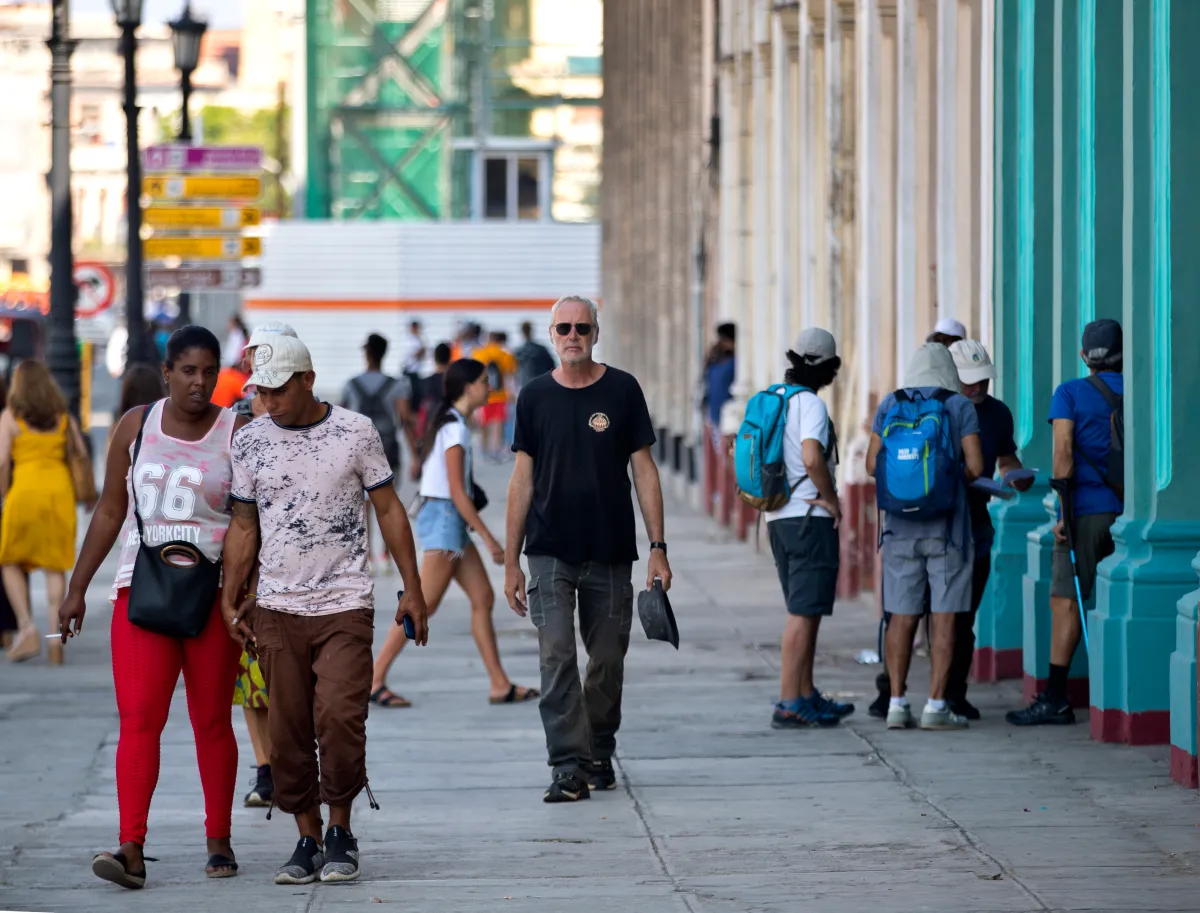
The population of Cuba in 2024 fell below 10 million inhabitants – significantly lower than the 11.1 million in 2021 – and “must continue to decrease,” the Government of the island confirmed on Friday.
This is the first official population figure released since the 2021 census.
As reported to parliament by Juan Carlos Alfonso, first deputy head of the National Office of Statistics and Information (ONEI), this is a “calculation”, which took into account the unprecedented migration of the last three years, as well as deaths.
Alfonso assured that if Cubans who emigrated but who have maintained their residence are considered, either because they spend part of the year on the island or because they have requested an extension from abroad, the figure rises to just over 10.05 million Cubans until 2023.
However, this figure represents a drop of 10.1% compared to residents in 2020 and is a figure similar to the one in Cuba in 1985, the official warned.
Alfonso also lamented that almost 80% of the ages of emigrants between 2021 and 2023 range between 15 and 59 years old, that is, in their “reproductive and productive” stages.
According to the official figures released this Friday, there are just over 1.2 million Cubans who “remain outside” the country – he did not clarify if they are all migrants and from what period – and 75% are no longer residents of the island.
In addition, he stated that the province of Havana, the most populous, is the one in which there has been a greater population decrease between 2021 and 2023: 15.3%.
In an interview with EFE, last June, Juan Carlos Alfonso himself said that the country will delay at least until 2025 the population census that it had planned to carry out two years ago due to the lack of resources.
According to an independent study by the Cuban economist and demographer Juan Carlos Albizu-Campos, the population of Cuba fell by 18% between 2022 and 2023, to 8.62 million people.
The calculation is based on the figures of Cubans who have arrived in the United States between October 2021 and April 2024, amounting to 738,680 people, according to information from the US authorities that combine visas, paroles and irregular arrivals.
International
Ukraine declares nationwide energy emergency amid russian attacks and extreme cold
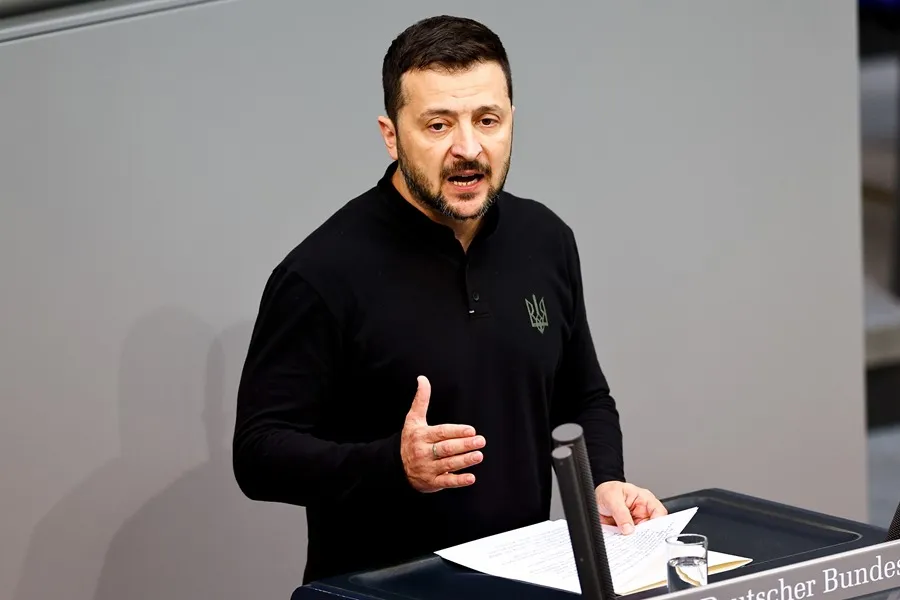
The Ukrainian government on Wednesday declared a nationwide energy state of emergency amid continued Russian military attacks and extreme winter weather, with nighttime temperatures dropping as low as minus 18 degrees Celsius.
“The consequences of Russian attacks and worsening weather conditions are severe (…) Overall, a state of emergency will be declared for Ukraine’s energy sector,” Ukrainian President Volodymyr Zelensky said in a statement posted on social media following a meeting with senior officials.
Zelensky announced the creation of a “permanent coordination headquarters” to manage the crisis in the capital, Kyiv, and tasked former defence minister and current energy chief Denys Shmyhal with overseeing support efforts for affected individuals and communities, including addressing power outages, heating shortages and other “practical issues.”
“There are many problems that require urgent solutions,” the president said, noting that repair crews, energy companies, municipal services and the State Emergency Service are working “around the clock” to restore electricity supplies. Kyiv has been particularly affected after Russian strikes last Friday disabled key parts of the power grid, as daytime temperatures hover around minus 12 degrees Celsius and plunge to minus 18 at night.
Zelensky added that public authorities will “maximize efforts with partners to obtain the necessary equipment and additional support,” while the government will ensure “maximum deregulation of all processes” to speed up the connection of backup power equipment to the grid. He also confirmed that work is underway to significantly increase electricity imports into Ukraine.
The Ukrainian leader further instructed his Cabinet to review curfew regulations in light of the extreme cold, arguing that citizens must have the greatest possible access to assistance centers, while businesses should be given flexibility to plan their operations according to the state of the energy system.
International
France joins Denmark’s ‘Operation Arctic Resistance’ in Greenland amid U.S. tensions

French President Emmanuel Macron confirmed in the early hours of Thursday (Wednesday afternoon in El Salvador) that France will take part in “Operation Arctic Resistance,” after Denmark announced it would expand its military presence in Greenland amid rising tensions with the United States over Washington’s stated ambitions regarding the semi-autonomous territory.
“At Denmark’s request, I have decided that France will participate in the joint exercises organized by Denmark in Greenland, ‘Operation Arctic Resistance,’” Macron said in a brief message posted on social media at 5:18 p.m.
The French president added that “the first French military elements are already on their way, with others to follow,” though he did not specify the number of troops being deployed or the scale of France’s planned contribution.
The governments of Sweden, Norway and Germany have also confirmed the deployment of military contingents to Greenland. Germany’s armed forces will send a 13-member reconnaissance team to the Greenlandic capital, Nuuk, to take part in a mission scheduled to run from Thursday through Saturday, according to the German Ministry of Defence.
Denmark’s announcement came shortly before a Danish delegation met at the White House with U.S. Vice President JD Vance and Secretary of State Marco Rubio to discuss Washington’s plans regarding Greenland. Copenhagen said the military activities would be carried out “in close cooperation with NATO allies.”
International
Iran closes airspace amid U.S. threats and deadly nationwide protests
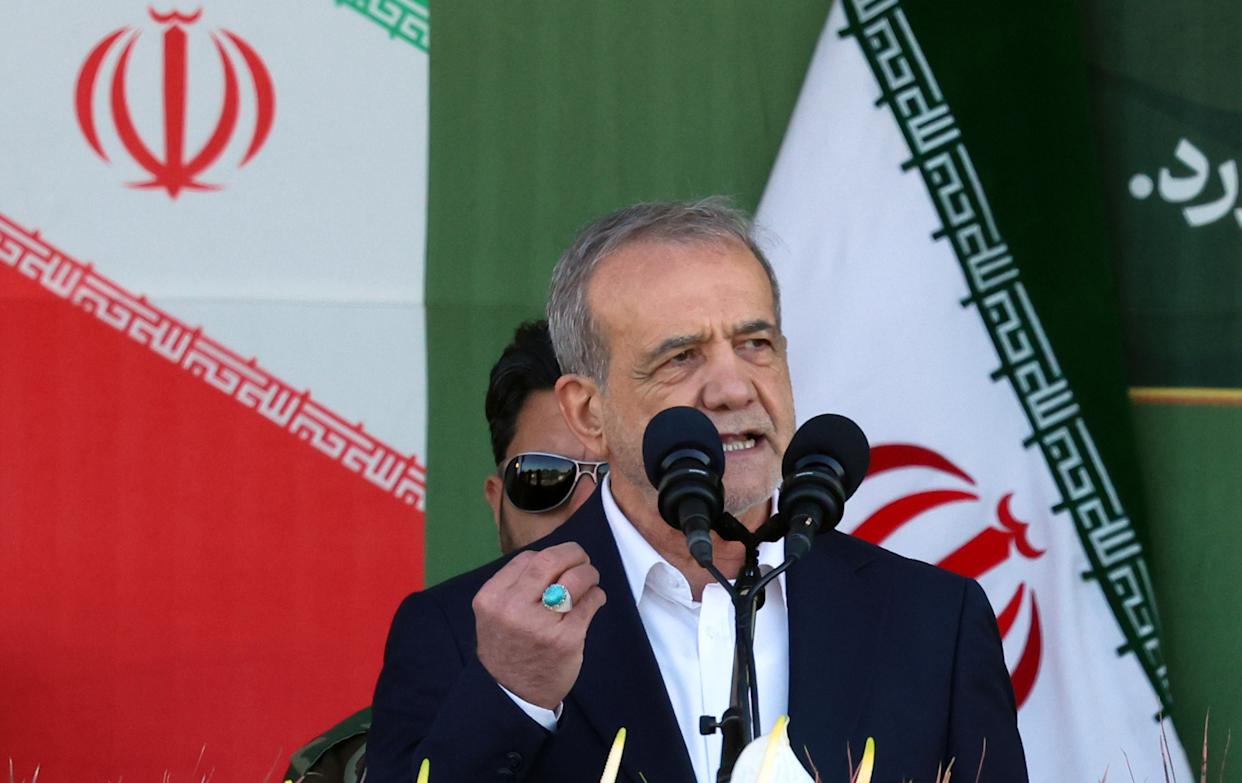
Iranian authorities closed the country’s airspace in the early hours of Thursday, according to data from flight-tracking website FlightRadar24, amid growing threats of a possible U.S. attack as protests across the country continue and have reportedly left thousands dead.
According to FlightRadar24, the Iranian government suspended all flights to and from the country, except for international flights that have received special authorization. The notice was initially issued for a duration of just over two hours.
The move comes after U.S. President Donald Trump in recent days threatened to strike Iran if its security forces failed to halt the deaths linked to weeks-long protests that began in Tehran and later spread to other Iranian cities. Despite the threats, the White House said diplomacy remains Trump’s preferred option.
Speaking from the Oval Office on Wednesday, Trump claimed that “the deaths in Iran have stopped” and said there would be no executions of protesters following his warnings to Tehran. He added that his administration would seek to verify those claims.
“I’ve been told the deaths in Iran are stopping. They’ve stopped, and that there are no plans for executions,” Trump told reporters, cautioning that the United States would be “very upset” if those assurances proved to be untrue.
The statements contrast with reports from rights groups. The Norway-based NGO Iran Human Rights (IHRNGO) said on Wednesday that more than 3,400 people have been killed since the protests erupted. Meanwhile, Kurdish-Iranian rights group Hengaw reported this week that a 26-year-old Iranian man, Erfan Soltani, was facing execution as of Wednesday.
-

 International3 days ago
International3 days agoDeadly van accident near Brazil border leaves 11 dead in Bolivia
-
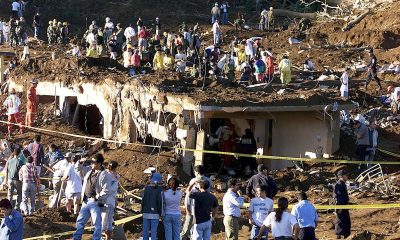
 Central America3 days ago
Central America3 days agoTaiwan’s $10 million donation after 2001 earthquakes allegedly diverted in El Salvador
-

 Central America3 days ago
Central America3 days agoU.S. and El Salvador maintain close partnership, embassy says
-

 International3 days ago
International3 days agoU.S. to host Danish and Greenlandic Foreign Ministers at the White House
-
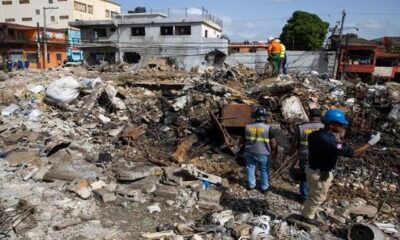
 International3 days ago
International3 days agoDominican court postpones hearing in deadly nightclub collapse case
-

 International3 days ago
International3 days agoPolice hunt gunmen after fatal shooting in Corsica
-
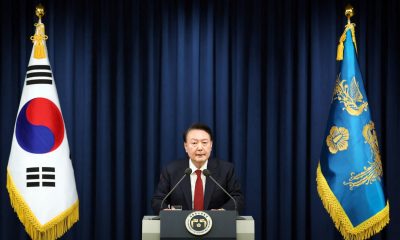
 International3 days ago
International3 days agoEx-President accused of bid to establish dictatorship as verdict nears in South Korea
-

 International3 days ago
International3 days agoVenezuelan opposition leader dedicates Nobel Prize to Trump
-

 International5 days ago
International5 days agoU.S. Issues Urgent Evacuation Call for Citizens in Venezuela
-
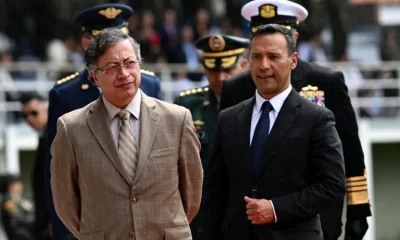
 International2 days ago
International2 days agoColombian Defense Chief Meets U.S. Officials to Advance Bilateral Narcotics Strategy
-

 Central America1 day ago
Central America1 day agoBukele warns crime can become a ‘parallel government’ during visit to Costa Rica
-
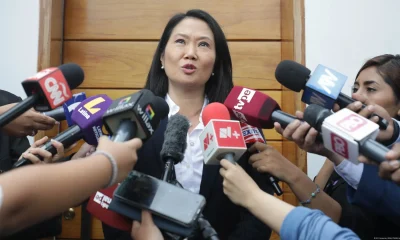
 International2 days ago
International2 days agoPeruvian Court Orders Definitive Dismissal of Money Laundering Case Against Keiko Fujimori
-

 International1 day ago
International1 day agoU.S. to suspend visa processing for applicants from 75 countries
-

 International18 hours ago
International18 hours agoIran closes airspace amid U.S. threats and deadly nationwide protests
-
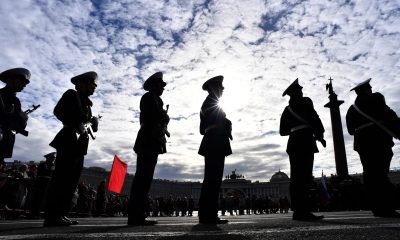
 International18 hours ago
International18 hours agoUK Intelligence estimates russian casualties in Ukraine at over 1.2 million
-

 International18 hours ago
International18 hours agoUkraine declares nationwide energy emergency amid russian attacks and extreme cold
-

 International18 hours ago
International18 hours agoU.S.–Denmark tensions escalate as Trump pushes NATO to back U.S. claim on Greenland
-

 International18 hours ago
International18 hours agoFrance joins Denmark’s ‘Operation Arctic Resistance’ in Greenland amid U.S. tensions
-
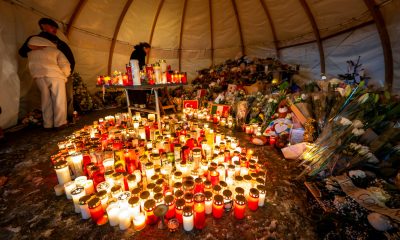
 International18 hours ago
International18 hours agoSwiss Canton of Valais Grants Emergency Aid to Victims of Crans-Montana Bar Tragedy
-

 International18 hours ago
International18 hours agoHillary Clinton skips Epstein inquiry as house panel threatens contempt charges
-

 International18 hours ago
International18 hours agoX moves to block Grok from creating sexualized images of real people amid legal scrutiny


























